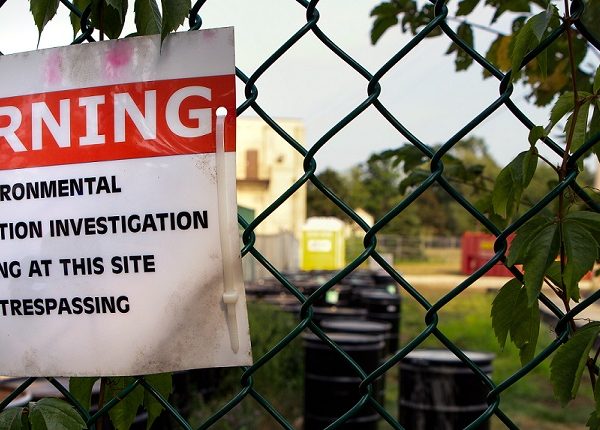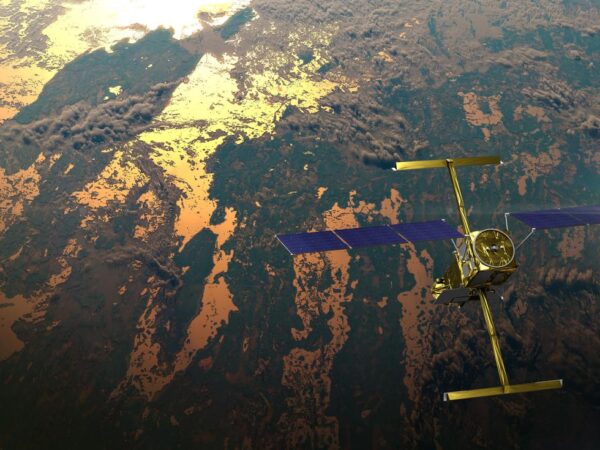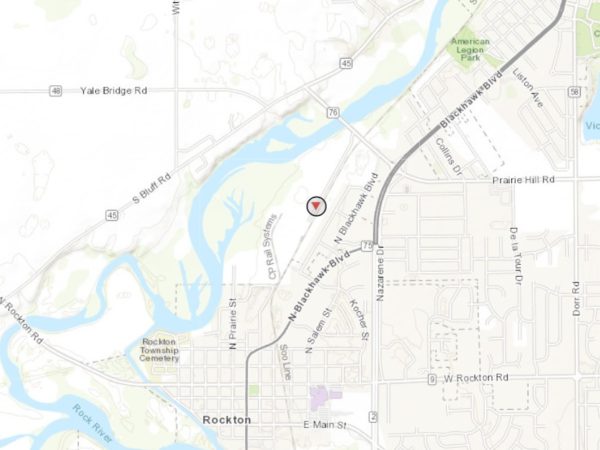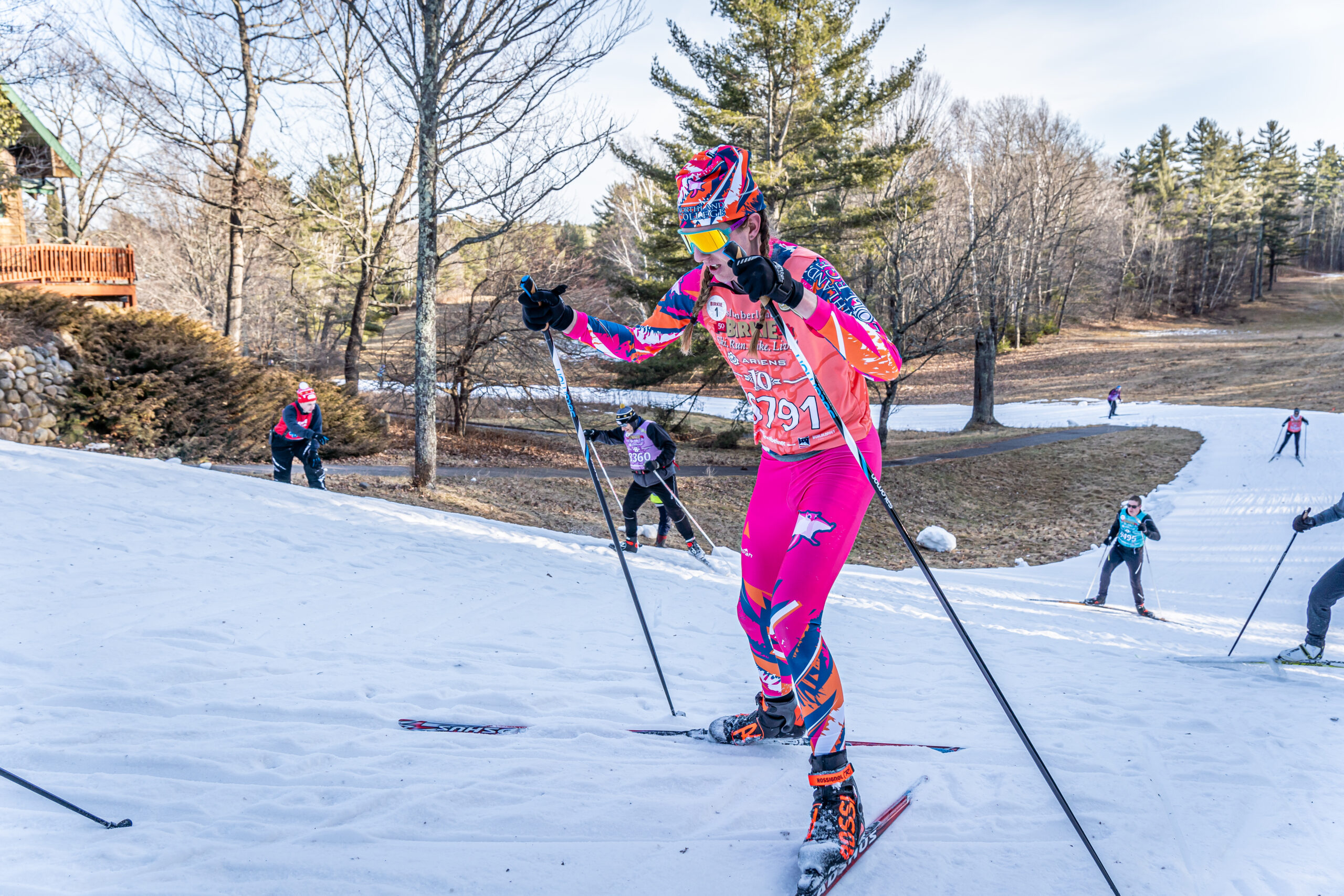
Hayward, Wisconsin got its first snow of the season on Halloween. But then Thanksgiving came, and Christmas, with no more white flakes. The new year started equally warm and snowless, and the organizers of the iconic American Birkebeiner ski race began to really worry. The February 24, 2024 race would be the 50th anniversary of the country’s most famous (and largest) cross-country ski event, and it would also be a World Cup competition, drawing top competitors from around the globe.
In 2017, the Birkebeiner was canceled because of a lack of snow. Soon after, the organization invested about $600,000 in snowmaking equipment, buying snow guns from the Boston Red Sox, who had previously used them to build a novelty ski jump.
“I remember thinking, ‘that’s crazy, why would we make snow, we live in Northern Wisconsin,’” said American Birkebeiner Ski Foundation executive director Ben Popp. “But we realized this is very likely a big part of the future.”
In November, Birkie officials made snow to cover a kilometer or two of trail for short races. Christmas Day was in the 50s and raining, a bad sign.
But in January a predicted 10-day cold spell offered hope. They used the equipment to churn out mounds of snow, huge piles known as “whales” in a parking lot ready to spread on trails later. Then the worst possible thing happened: more rain. Contract workers rushed to spread 13,000 dump trucks worth of the stockpiled snow over flat ground, including a golf course, to preserve some of it because, left in piles, it would ice over and become unusable.
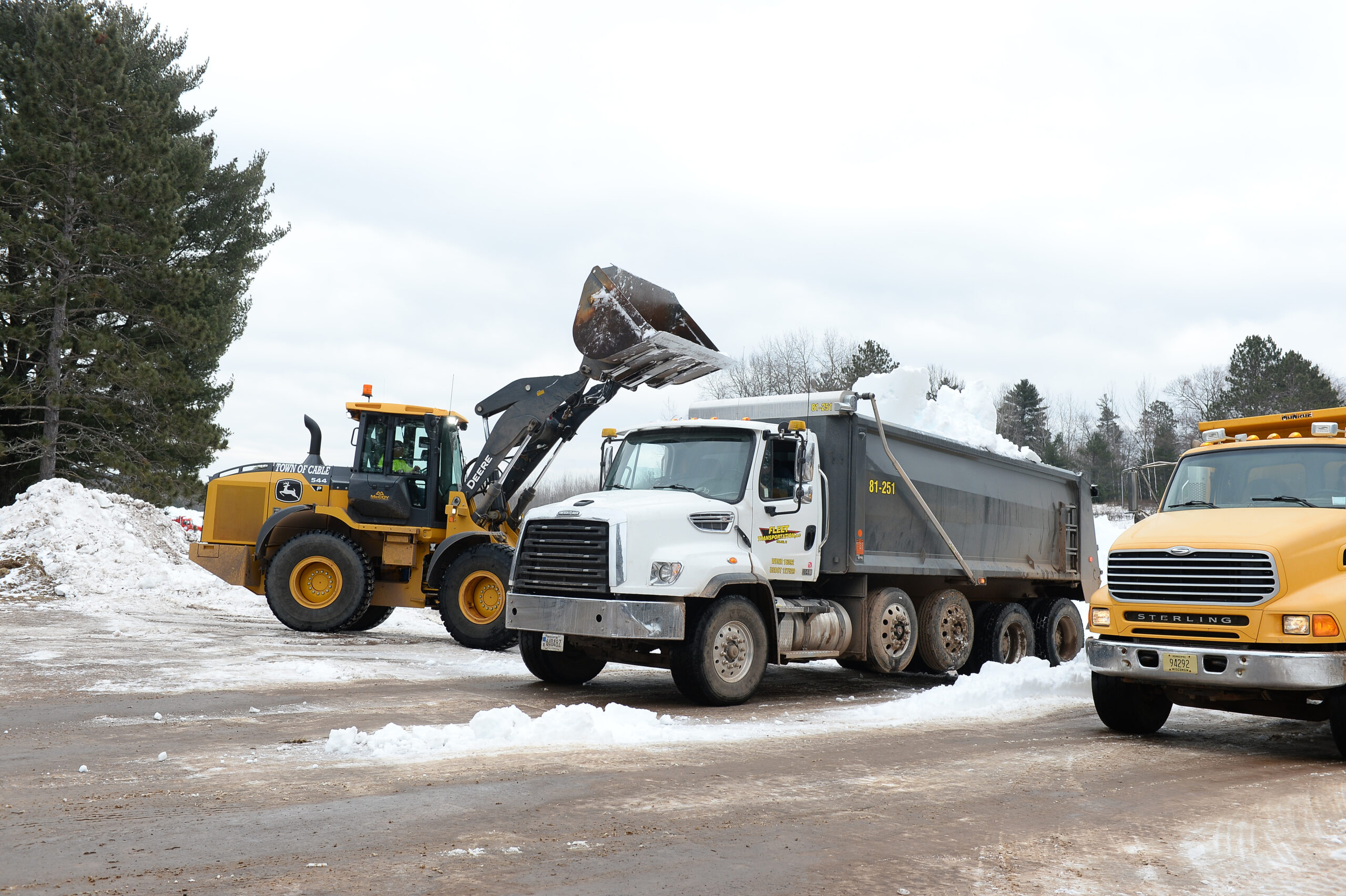
Birkie officials made snow to cover a kilometer or two of trail for short races. (Photo courtesy of American Birkebeiner)
The American Birkebeiner is the U.S. version of the vaunted Norwegian Birkebeiner, which itself is inspired by a 1206 Nordic ski journey to save the infant heir to the throne from murderous rivals. Hayward’s very identity and economy, and that of the surrounding area, centers largely around the Birkebeiner, with lodging booked up months in advance and stores, restaurants and bars packed during race week.
A study from a decade ago put the economic impact of the American Birkie at over $20 million, and it’s only grown since then, including a suite of ski races and mountain biking and other events in the off-season.
“Outdoor recreation is really what drives our Northwestern Wisconsin industry,” said Popp. “It used to be the timber industry, now it’s outdoor recreation, and the Birkie is leading that.”
Through January and February, Birkie competitors from all 50 states anxiously watched the weather reports, hoping things would change before the big day. Finally, at a webinar on February 12, organizers announced the plan. Typically the main Birkebeiner race is a point-to-point 50- to 55-kilometer course, starting in the small town of Cable, Wisconsin and ending in a festive glide down the main street of Hayward, population 2,500.
This year, the traditional course would not be possible. Instead, the race started and ended in Cable, covering 10-kilometer loops of man-made snow. The elite World Cup skate race would occur as planned on Saturday, covering the usual distance in five loops. Classic Nordic skiers would do a shortened 30-kilometer race on Sunday. Other measures were taken to preserve the precious snow, like prohibiting testing out ski wax on the Birkie trail and moving some related events to other trails.
Organizers and competitors alike were ultimately proud of how the event persevered, despite it being the warmest winter in the state’s history, since record-keeping began in 1895.
“They absolutely pulled a rabbit out of a hat,” said Sue Scheer, a Hayward native who did her 33rd Birkie this year. “I think people were excited because they hadn’t done a race all year, all the races were canceled. I live about 200 yards from the Birkie Trail, my eyes were on that thing daily. I was hiking on it rather than skiing on it.”

Sue Scheer has participated in Birkie 33 times including this year. (Photo courtesy of Sue Scheer)
The race was just one example of how winter sports and recreation that are integral to the culture and economy of the Great Lakes region are being drastically changed — likely permanently — by a warming and more unpredictable climate.
Dog sledding, snowmobiling, ice fishing, ice sculpting, hockey, and snowshoeing are among the ubiquitous competitive and recreational pursuits that were thrown into limbo this past winter in the Great Lakes, with future prospects likely uncertain. Even Christmas tree shopping was affected, as cut pines need cold weather to retain their needles, and few people want to stroll around a Christmas tree farm in the rain and mud. Tourism suffered so much that Wisconsin Governor Tony Evers declared a state of emergency, making relief funds available to affected businesses.
Residents and aficionados of the Great Lakes’ most wintry areas — including the Upper Peninsula, North Woods and North Country — are by definition a hardy bunch and are determined to continue the sports and lifestyles they love even as the climate changes. But it will take increased creativity, expense and resiliency to do so.
For many, the situation only underscores the urgency of addressing and preparing for climate change. Indeed, the Birkie is working to raise $1.8 million for more snowmaking equipment and expanding the Birkie village with a restaurant, cabins, and a new Nordic center — powered with solar panels and geothermal heating.
“That will help us ensure no matter what kind of weather we have can make sure the Birkebeiner happens year after year,” Popp said. “But if you’re investing in snowmaking powered by fossil fuels, it’s only contributing to the problem. We won’t change the climate ourselves, but it’s important we’re part of a longer-term solution.”
Mushing Magic
Like the Birkie, the UP200 dog sled race starting in Marquette, Michigan is an iconic event that brings together a close-knit community each year. Mushers and teams of a dozen dogs race over more than 200 miles through two frigid nights in the lovely and forbidding forest of Michigan’s Upper Peninsula.
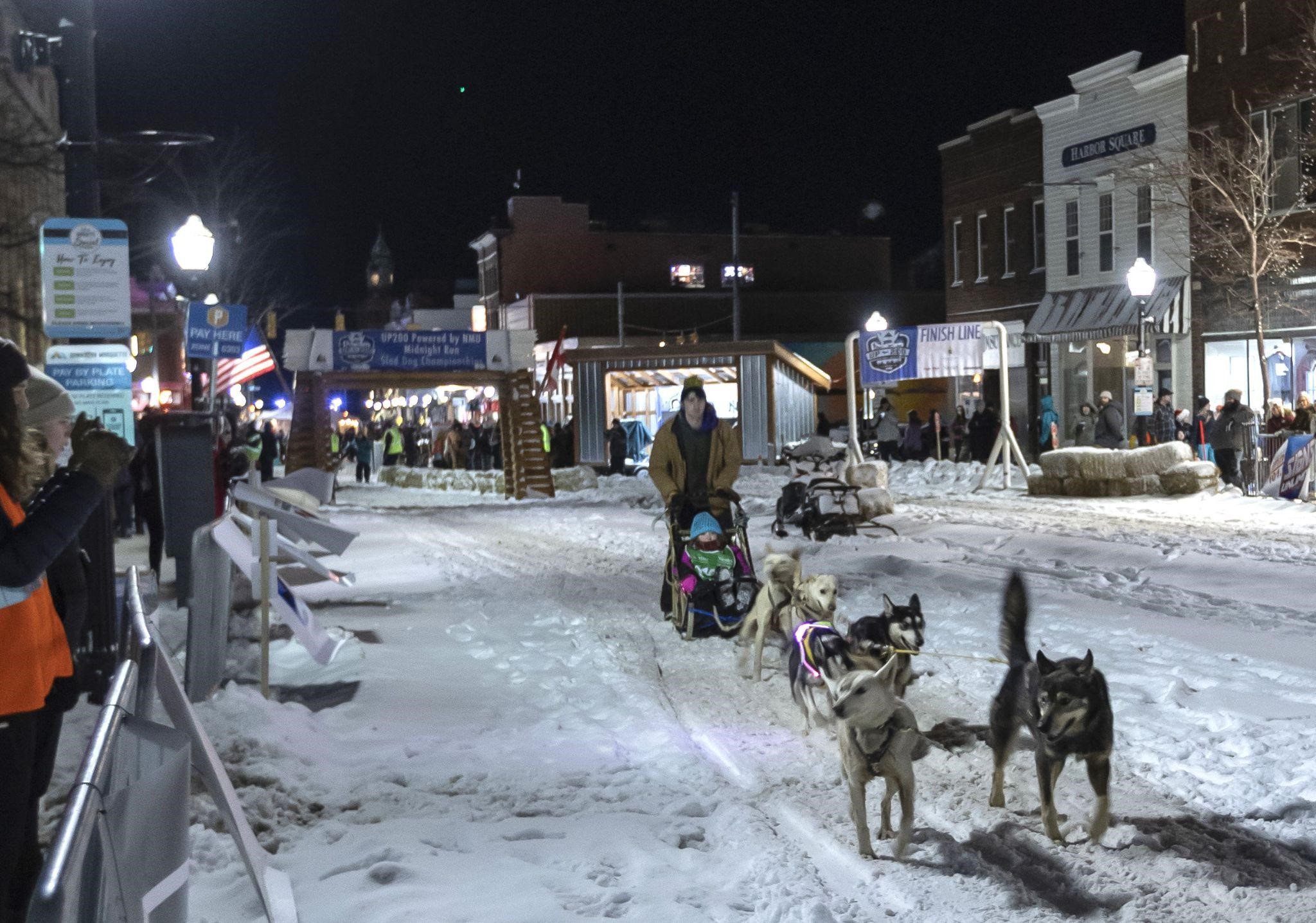
The 2024 festival sled rides. (Photo courtesy of UP200)
Darlene Walch, a former musher and now CEO of UP200, describes the atmosphere.
“The teams are lining up one behind another, everyone is cheering, five to six thousand people lining those two blocks. The dogs are excited, they’ve been waiting, they know this routine,” she recounts. “Mushing has a long history in the UP, for sport and for work. They used to deliver mail across part of the UP using dog teams. There’s a cultural aspect that we try to highlight and honor.”
The UP200 also includes shorter races with smaller dog teams during the big weekend in mid-February: the Jack Pine 30 and Midnight Run. The event contributes about $2 million to the local economy, according to a 2020 study by the Lake Superior Community Partnership.
But the UP200 and multiple other dog-sled races were canceled this year. The UP200 was also axed last year. The races had never been canceled before, only shortened because of blizzard conditions. Last year the UP200 board improvised and quickly pulled together a Festival of the Sled Dog. This year, Walch explained, they prepared for a festival and race simultaneously, knowing the race might not happen.
Ward Wallin considers his entry into dog sledding as one of three life-changing events, along with marriage to his wife, Colleen, and the birth of his son, Ero. After they moved north of Duluth over 30 years ago, Colleen was enchanted by the Beargrease race dog sled teams passing by their home, and decided to volunteer.
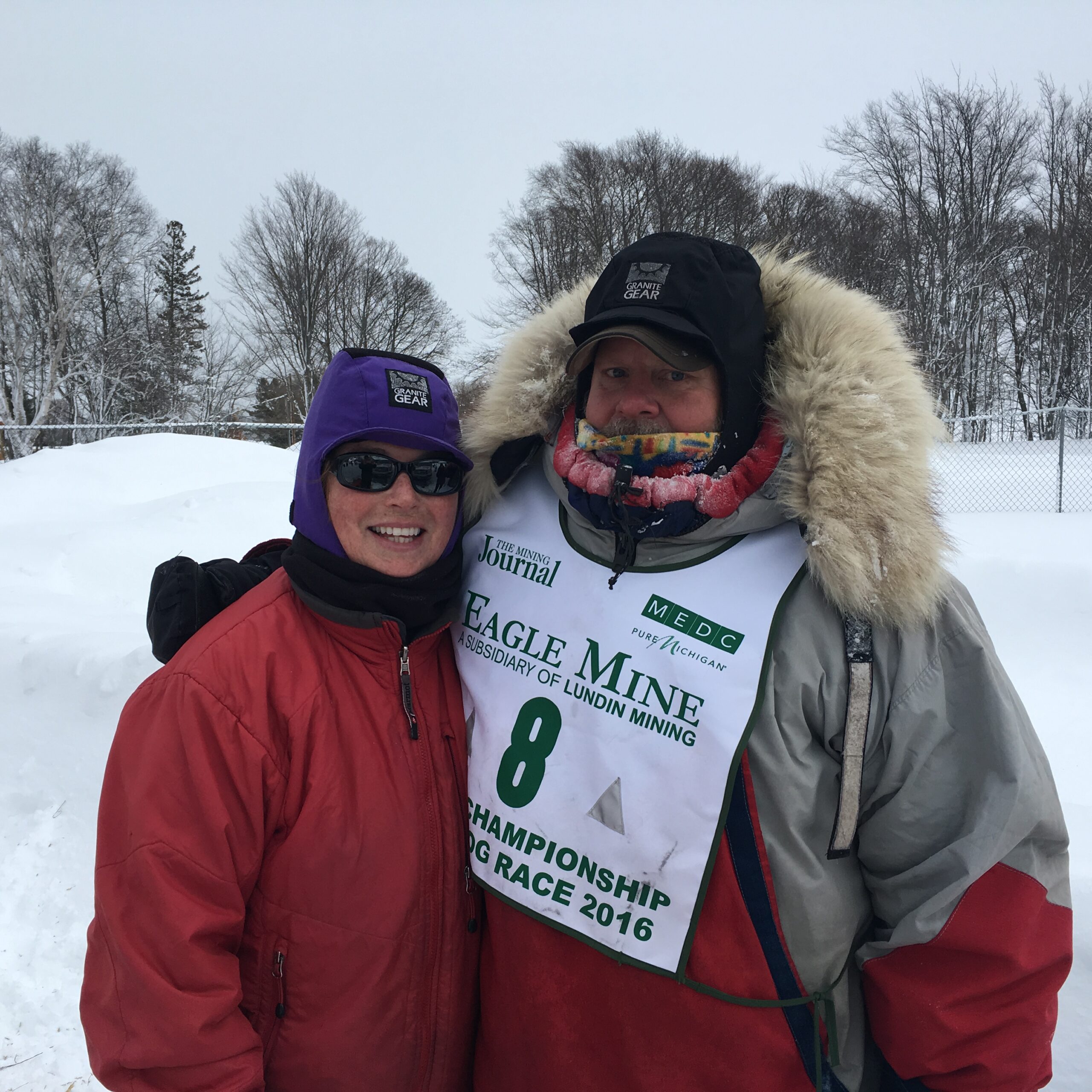
Ward Wallin and his wife Colleen, who is also a musher. (Photo courtesy of Ward Wallin)
“I remember it was 3 a.m., 35 below,” Ward Wallin recalls. “She said do you want to go, and I said, ‘Hell no!’”
Now he’s done the UP200 himself almost 30 times, more than any other musher, with two top-three finishes, and fourth place in 2023. Colleen has specialized in races closer to home. Their son, now 22, began competing as a teenager. Wallin said he loves the highs and the lows.
“You see a dog team traveling on pristine snow, hoarfrost on the trees,” he says. “But what people don’t always see is the behind-the-scenes, hard work it takes to get there, the crazy things that happen on the trail.”
This year he knew there was a chance the race would be canceled, so he skipped a few days of training — something he’d never do in a regular year — to see his son play sports in Texas. When race weekend came, he and Colleen couldn’t help but talk about what could have been. On Friday night, the dogs normally would be getting their paws checked by veterinarians. On Saturday, Ward would be passing the Prince of Peace Church, cheered on by friends.
“When Sunday morning rolls around, my wife was saying, ‘Do you think you’d be racing for first or third place’ And I don’t even want to think about it.”
On Thin Ice
Since he was 17 years old, Don Herman — now 66 — has plowed a road across Lake Winnebago in northeastern Wisconsin almost every winter. Locals drive across the ice as a shortcut to work, not to mention hauling shacks out onto the ice for ice fishing.
But this year, the ice was so thin that a road was out of the question and ice-fishing was dicey at best. Herman’s SUNK? Dive and Ice Service pulled a dozen vehicles out of frozen lakes after they crashed through the ice. That was actually fewer than usual. In a regular year, about 30 vehicles or ice shacks need to be rescued, after falling victim to weak spots in even the most robust ice.
“My best years are when we have good ice, not much snow and they can drive on places they’re not supposed to be,” Herman said. This year, the ice cover was so fragile that most people didn’t even attempt to venture on with heavy equipment.
“This is probably the worst season I’ve seen, and I’ve been doing it for 49 years,” Herman continued. “I’ve never seen it open water the whole year on Lake Winnebago.”
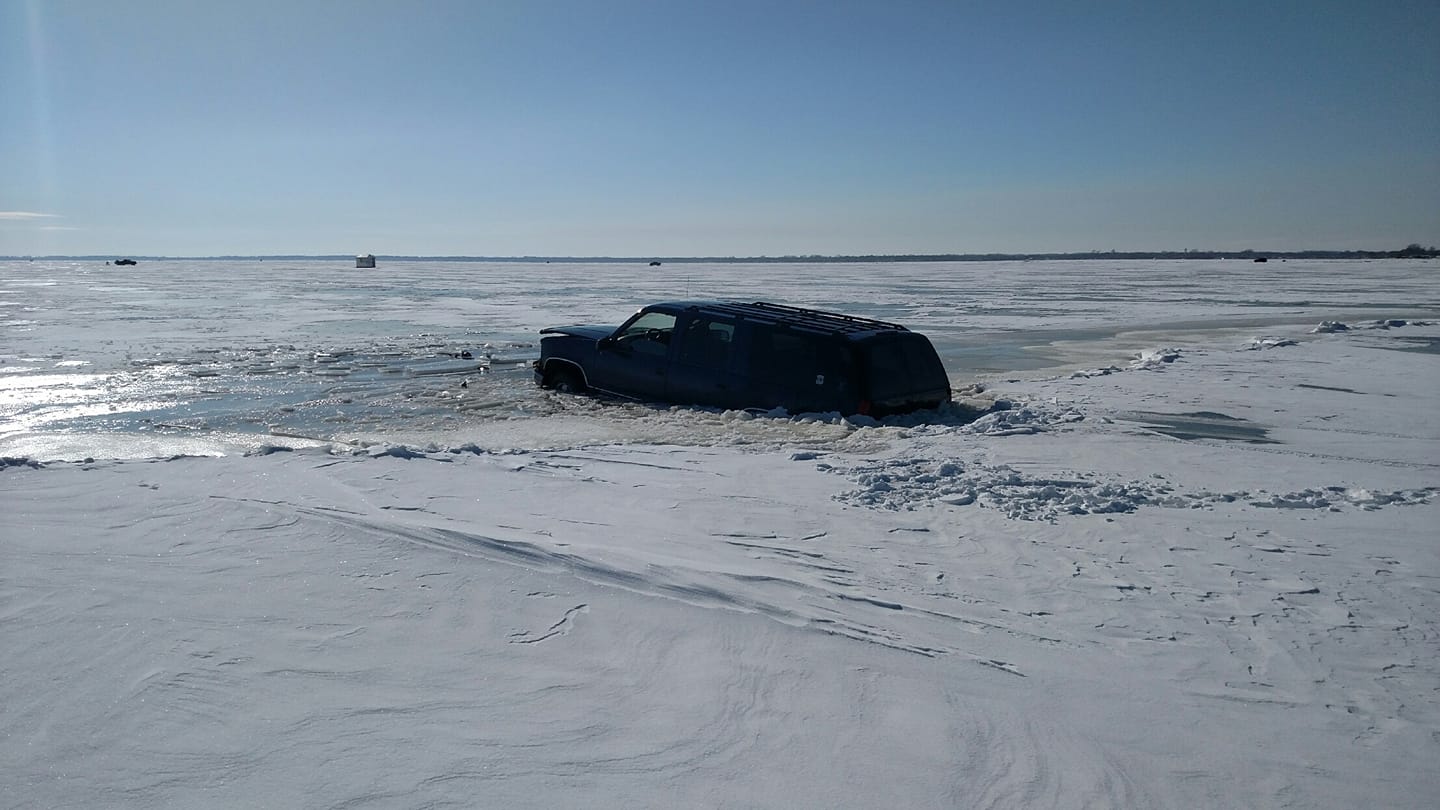
SUNK Ice and Dive Services. (Photo courtesy of Donnie Herman, Lake Winnebago)
Herman is part of the Otter Street Fishing Club, which hosts an annual hockey tournament on Lake Winnebago. This year, it was canceled. Herman said that the state typically issues licenses for the harvesting of 13,000 sturgeon. With ice fishing stalled, this year only about half of them were claimed. The Battle on Bago ice fishing festival that raises money for local non-profits was still held, but the fishing competition was scrapped, for the second straight year. A major ice fishing derby on Tupper Lake in New York was canceled this winter, as were many other ice fishing events.
Meanwhile warmer winters and reduced ice cover can harm fishing — and fishery health — all year long. Species that spawn in the spring depend on cold winters to trigger the metabolic processes needed for healthy eggs, and those that spawn in the fall need ice cover to protect their eggs over the winter.
“Storms or wave action dislodge those eggs and smother them,” said Zachary Feiner, a fisheries research scientist with the UW-Madison Center for Limnology. “We’re already seeing these effects happen, and seeing our ice-off getting more and more unpredictable. You could start stacking these effects, year after year, and in the long-term really have negative impacts on walleye or other species.”
Disturbing trends
Wisconsin assistant state climatologist Bridgette Mason explains that this year, “the statewide average December temperature was 32.3°F, a whopping 10.9°F above normal. On top of being a record-breaker, it was the first time that a statewide average December temperature in Wisconsin was above freezing.”
The statewide average February temperature was 31.8 degrees, a remarkable 12.6 degrees warmer than the 1991-2020 normal.
“El Niño, characterized by elevated ocean temperatures in the tropical Pacific, tends to alter global atmospheric jet streams, often resulting in milder winters for Wisconsin due to a northward shift of the jet stream keeping cold, Arctic air from circulating as widely,” explained Mason. “Wisconsin saw just 25 to 75 percent of normal snowfall, which ended up being about 20 to 60 inches below normal. The biggest deficits were along the Lake Superior snowbelt, where the near absence of Arctic air masses prevented lake effect snowfall, despite a mostly ice free lake.”
University of Wisconsin professor emeritus, aquatic ecologist and limnologist John Magnuson has been studying the ice on Lake Mendota and other area lakes for four decades. In a 2014 article for LakeLine magazine, he waxed poetic about “the glistening of early sun on the surface ice and snow of Mystery Lake,” and the “unique zinging and deep thunderous sounds” of lake ice contracting and swelling.
He has studied the economic and cultural impacts of shrinking ice cover across the northern hemisphere, noting how it interferes with religious ceremonies in Japan and Switzerland, and hurts First Nations communities reliant on ice roads in Canada.
“Reduced ice fishing during warmer winters, as highlighted in the fishing tournament results, has the potential to influence parts of the social network, economy, food security, and overall wellbeing of northern communities,” says a 2019 study Magnuson co-authored.
He has documented loss of life, with a study showing winter drowning deaths “increased exponentially” when temperatures warm and ice becomes less stable. And he stresses the unquantifiable toll of the loss of scenes like morning light on ice stalagmites, or building snow caves as a child.
Using records kept since 1852, Magnuson and colleagues documented that Lake Mendota in Madison is ice-covered for a whole month less on average in recent times than it was a century and a half ago. This year was the second-shortest ice season on the lake, at six weeks. Magnuson remembers 2001-2002, when Lake Mendota was only ice-covered for 21 days.
Looking out his office window at the open water, Magnuson said, “I felt very sad.”
Catch more news at Great Lakes Now:
Warmer winters mean less ice on Lake Michigan – hurting lake trout and whitefish
Michigan’s lost winter cancels sturgeon season, ski, dog sled races
Featured image: The American Birkebeiner ski race. (Photo courtesy of American Birkebeiner)


